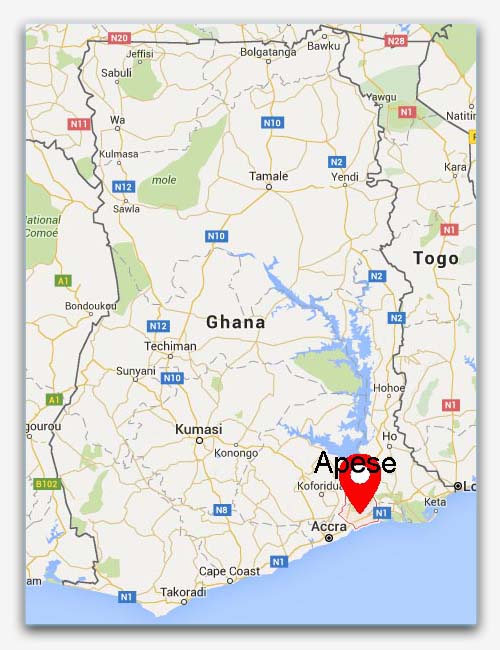
About Apese
Apese is a village of migrant tenant and squatter farmers in the Shai-Osudoku (formerly part of Dangme West) district of the Greater Accra region. Repeated living standards surveys in Ghana have shown that the highest poverty levels are in the rural coastal and northeren savannah regions of the country. Despite the gradual improvements in living standards and poverty incidence across the country, these areas continue to have poverty levels below the national average. The children of these Apese farmers are particularly challenged by the fact that the nearest schools are in Agomeda or Ayikuma, bigger and slightly more prosperous communities about 4 or more miles away.
These are public schools that are free because of the compulsory universal basic education policy of the government of Ghana. However the “travel to get to school” costs more or less negate the opportunity created by the free public school system in Agomeda and Ayikuma and the younger children of Apese still do not attend school and the drop out rate of the older children is high. This is because to go to school involves a walk of about 4 miles along a highway with fast moving cars. Parents are afraid to send their children to school because of the length of the walk and the highway.
The performance of those who do attend school is generally poor. This is a problem of the Public School system, especially in the poorer and more remote communities with no amenities like running water and electricity.
It is difficult for the school to attract and retain the best teachers and they are also under resourced in terms of books and othere educational materials. The poverty of their parents also limits their access to supporting educational materials and home support. Quite apart from the high drop out rate, very few children from the public schools in poor rural districts like this perform well enough to make it to Senior High School and through to University.
